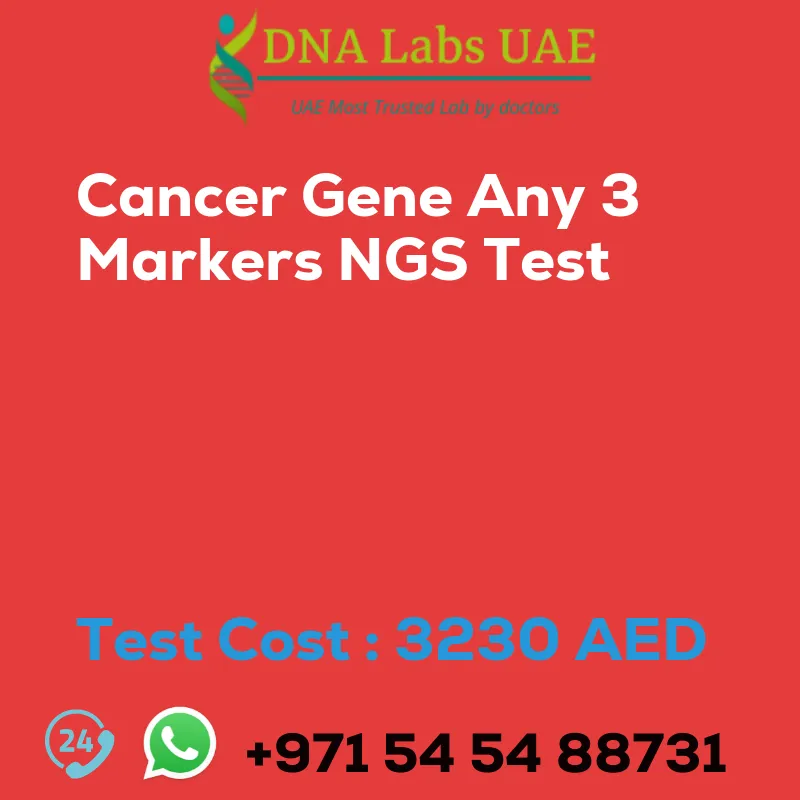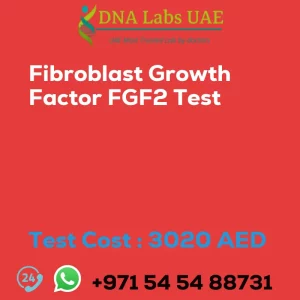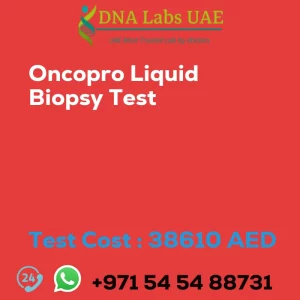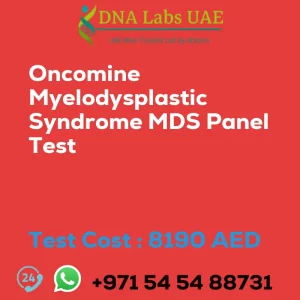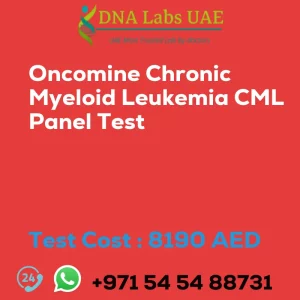CANCER GENE ANY 3 MARKERS NGS Test
At DNA Labs UAE, we offer the CANCER GENE ANY 3 MARKERS NGS Test for the diagnosis of various types of cancer. This test utilizes Next-Generation Sequencing (NGS) technology to detect specific genetic markers associated with cancer.
Test Details
Components: ANY THREE OF THE FOLLOWING: ABL1, EGFR, GNAS, KRAS, PTPN11, AKT1, ERBB2, GNAQ, MET, RB1, ALK, ERBB4, HNF1A, MLH1, RET, APC, EZH2, HRAS, MPL, SMAD4, ATM, FBXW7, IDH1, NOTCH1, SMARCB1, BRAF, FGFR1, JAK2, NPM1, SMO, CDH1, FGFR2, JAK3, NRAS, SRC, CDKN2A, FGFR3, IDH2, PDGFRA, STK11, CSF1R, FLT3, KDR, PIK3CA, TP53, CTNNB1, GNA11, KIT, PTEN, VHL
Price: 3230.0 AED
Sample Condition:
- For Leukemias: Submit 3 mL (2 mL min.) whole blood in 1 Lavender top (EDTA) tube. Ship refrigerated. DO NOT FREEZE.
- For Solid tumors: Submit formalin-fixed paraffin-embedded tissue block. Block should have at least 10% tumor tissue. Ship at room temperature.
Report Delivery: Sample Mon by 11 am; Report 10 Working days
Method: Next Generation Sequencing
Test Type: Cancer
Doctor: Oncologist
Test Department: MOLECULAR DIAGNOSTICS
Pre Test Information
Duly filled NGS Test Requisition Form is mandatory.
Three Cancer Gene Markers
There are many different types of cancer genes and markers that can be tested using Next-Generation Sequencing (NGS) technology. Here are three examples:
- BRCA1 and BRCA2: These genes are associated with an increased risk of breast and ovarian cancer. Mutations in these genes can be detected using NGS testing, which can help identify individuals who may benefit from preventive measures or targeted therapies.
- EGFR: This gene is commonly mutated in non-small cell lung cancer (NSCLC). NGS testing can identify specific mutations in the EGFR gene, which can guide treatment decisions, such as the use of targeted therapies like EGFR inhibitors.
- KRAS: Mutations in the KRAS gene are frequently found in various types of cancer, including colorectal cancer. NGS testing can detect specific mutations in the KRAS gene, which can help determine prognosis and guide treatment decisions, such as the use of targeted therapies.
It’s important to note that the specific genes and markers tested may vary depending on the type of cancer being investigated and the specific NGS panel being used.
| Test Name | CANCER GENE ANY 3 MARKERS NGS Test |
|---|---|
| Components | ANY THREE OF THE FOLLOWING: ABL1, EGFR, GNAS, KRAS, PTPN11, AKT1, ERBB2, GNAQ, MET, RB1, ALK, ERBB4, HNF1A, MLH1, RET, APC, EZH2, HRAS, MPL, SMAD4, ATM, FBXW7, IDH1, NOTCH1, SMARCB1, BRAF, FGFR1, JAK2, NPM1, SMO, CDH1, FGFR2, JAK3, NRAS, SRC, CDKN2A, FGFR3, IDH2, PDGFRA, STK11, CSF1R, FLT3, KDR, PIK3CA, TP53, CTNNB1, GNA11, KIT, PTEN, VHL |
| Price | 3230.0 AED |
| Sample Condition | For Leukemias: Submit 3 mL (2 mL min.) whole blood in 1 Lavender top (EDTA) tube. Ship refrigerated. DO NOT FREEZE. For Solid tumors : Submit formalin fixed paraffin embedded tissue block. Block should have at least 10% tumor tissue.Ship at room temperature. \nDuly filled NGS Test Requisition Formis mandatory. |
| Report Delivery | Sample Mon by 11 am; Report 10 Working days |
| Method | Next Generation Sequencing |
| Test type | Cancer |
| Doctor | Oncologist |
| Test Department: | MOLECULAR DIAGNOSTICS |
| Pre Test Information | Duly filled NGS Test Requisition Formis mandatory. |
| Test Details |
There are many different types of cancer genes and markers that can be tested using Next-Generation Sequencing (NGS) technology. Here are three examples: 1. BRCA1 and BRCA2: These genes are associated with an increased risk of breast and ovarian cancer. Mutations in these genes can be detected using NGS testing, which can help identify individuals who may benefit from preventive measures or targeted therapies. 2. EGFR: This gene is commonly mutated in non-small cell lung cancer (NSCLC). NGS testing can identify specific mutations in the EGFR gene, which can guide treatment decisions, such as the use of targeted therapies like EGFR inhibitors. 3. KRAS: Mutations in the KRAS gene are frequently found in various types of cancer, including colorectal cancer. NGS testing can detect specific mutations in the KRAS gene, which can help determine prognosis and guide treatment decisions, such as the use of targeted therapies. It’s important to note that the specific genes and markers tested may vary depending on the type of cancer being investigated and the specific NGS panel being used. |

